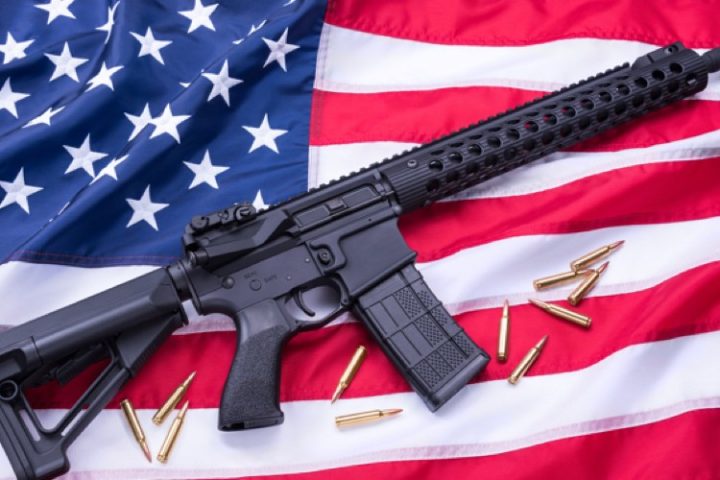
When Second Amendment groups such as the NRA and Gun Owners of America (GOA) learned that Trump had in fact nominated Amy Coney Barrett to fill the Supreme Court vacancy left by the passing of Justice Ruth Bader Ginsburg, they were delighted.
Said the NRA: “Judge Barrett’s record demonstrates a steadfast commitment to the fundamental rights enshrined in our Constitution.” Said the GOA: “Barrett … has indicated a willingness to examine and apply the Second Amendment as written, by looking at its text and using history as a guide.”
Said Dudley Brown, president of the National Association for Gun Rights (NAGR): “During her tenure as a lawyer and Appellate Court Judge, Amy Coney Barrett has displayed the tenacity it will take to defend our most sacred liberties at the highest level.”
The key case that proves their point is her dissenting opinion in Kanter v. Barr, a case in which a non-violent felon lost his Second Amendment-protected rights and the Seventh Circuit upheld a lower court’s decision keeping him disarmed.
Barrett dissented, holding that based upon the plain reading of the Second Amendment, and the history behind its enforcement as far back as 1791, states had the power to prohibit people from possessing firearms only if such people could be shown to be dangerous to public safety. Rickey Kanter, who pleaded guilty to one count of federal mail fraud for falsely representing that his company’s therapeutic shoe inserts were Medicare-approved and for billing Medicare on that basis, was, from Barrett’s position, clearly a non-violent felon.
From her dissent:
History is consistent with common sense: it demonstrates that legislatures have the power to prohibit dangerous people from possessing guns.
But that power extends only to people who are dangerous.
Founding-era legislatures did not strip felons of the right to bear arms simply because of their status as felons.
Nor have the parties [prosecuting Kanter] introduced any evidence that founding-era legislatures imposed virtue-based restrictions on the right; such restrictions applied to civic rights like voting and jury service, not to individual rights like the right to possess a gun.
In 1791 — and for well more than a century afterward — legislatures disqualified categories of people from the right to bear arms only when they judged that doing so was necessary to protect the public safety….
Absent evidence that he either belongs to a dangerous category or bears individual markers of risk, permanently disqualifying Kanter from possessing a gun violates the Second Amendment.
If and when Barrett puts on her black robe, Chief Justice John Roberts’ role as a “swing” vote on the Second Amendment will come to an end. As Daniel Horowitz wrote at The Blaze: “Chief Roberts … has allowed lower courts to chip away at [the Second Amendment] to the point that they now only affirm some right to own some sort of gun in one’s home. Everything else — from bans on common weapons and … standard magazines to categorical bans on the right to bear arms outside of one’s home — has been upheld by nearly every appeals court.”
Roberts’ anti-Second Amendment position was exposed by CNN’s legal analyst Joan Biskupic in July when she reported that Roberts “sent enough signals during internal deliberations on firearms restrictions … to convince fellow conservatives [that] he would not provide a critical fifth vote anytime soon to overturn [states’] gun control regulations.”
As a result, the high court turned away a great opportunity to review nearly a dozen appeals from anti-2A lower court decisions, leaving Second Amendment infringements in place. Said Horowitz: “What is so egregious … is that lower courts are literally repealing a Supreme Court opinion [on Heller].”
Upon donning her robe, Barrett will end Roberts’ role as final arbiter of precious gun rights and begin the process of restoring the Second Amendment to its proper first-tier position in the Constitution’s Bill of Rights.
An Ivy League graduate and former investment advisor, Bob is a regular contributor to The New American, writing primarily on economics and politics. He can be reached at [email protected].



